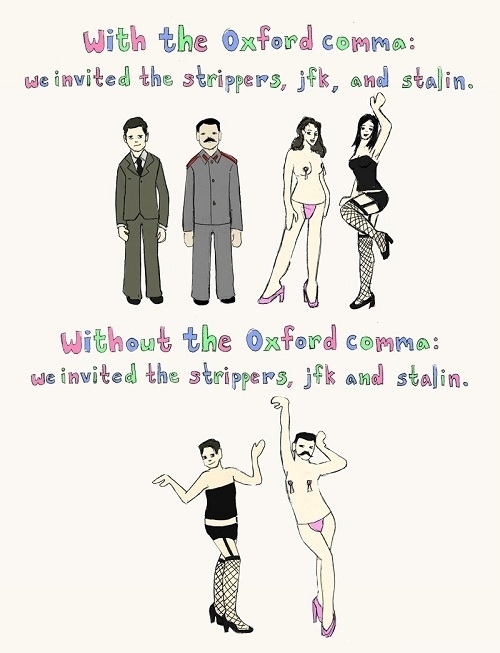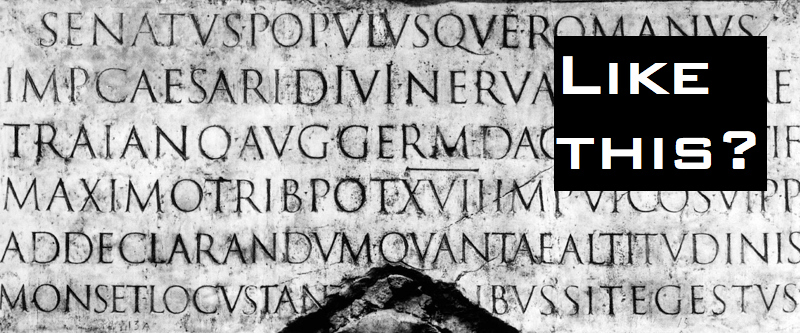
I'm afraid I didn't leave the article on a very encouraging conclusion. Where does it leave us? The idea that we can't ever be sure of making ourselves understood? Let's be honest, I'm arguing for a very messy, unsatisfying definition of what counts as English, and what counts as acceptable English speech. And yeah. Linguists don't agree on any real definition. Does Scots count as a variety of English, or a language in its own right? Take any slice of Robert Burns – who fucking knows what Auld Lang Syne is on about? What counts as a language or not is often a political matter. Scots is generally seen as a language for two reasons. The first is linguistic. People who self-identify as English speakers often can't unpick Scots – but far more can grapple Scots than Welsh (Scots is far more closely-related to English than Welsh, anyway). The second reason is that the SNP probably wants it to be seen as a facet of what makes Scotland different. (Never mind the not insignificant number of Scots speakers in Ulster, eh?)
Then again. Research by the General Register Office for Scotland in 1996 asked people whether they could speak Scots. About 30% said "Yes". But only 18% said the Scots "Aye." There are caveats to this. Were they questioned in RP English, or by someone clearly au fait with Scots? The picture is getting murkier still.
But we can cling on to some things for clarity. I've already stated that I see the need for a more official, standardised dialect. I'm also going to extend that beyond speech, to writing. One of the reasons historical linguistics can be so fecund a subject is that writers in the past did not follow one standard. Hence, localisms and dialectal quirks made their way into official documents. London was not a centre for writing and book-keeping until comparatively recently – that was the job of religious institutions and, later, universities. These were scattered around the country, and the amount to which they can vary is huge.
This isn't the case any more. RP Englsih has been groomed, spread across the world, and – for the most part – codified and standardised. Of course there are a few minor differences. Some nations write color and end verbs like politicise with -ize, and for British English, they're out-of-place. Aussies still call a speedometer an odometer. This is fine. But two things that we have codify well are punctuation, and spelling. We aren't in the Middle Ages. We learn these things in school, just like all English speakers everywhere. And here – in this rarefied, written context – is where there is a right and wrong. Not using it is, in today's text-reliant world, inexcusable.

We need to learn and apply punctuation and spelling more strictly than we do now. Because, otherwise, we may have problems with ambiguity. Just like in the picture above. Remove the comma (this is known as a serial comma or an Oxford comma), and the meaning is changed. This is why I see the difference between your and you're, and the like, as a matter of punctuation. Poor punctuation leads to sloppy, misunderstandable writing. As long as clear, stylised communication is what we're after. This isn't always what we're trying to write - a Facebook message to a pal needn't have this.
I'm not necessarily worried about grammar, either. Yes, bad grammar ticks me off, and I try not to make mistakes, but I'm more lenient on this one. With one caveat – what's written must be as understandable as possible. This is why it's and its falls (to me, not to everyone) under punctuation rather than grammar. And most "bad grammar" mistakes we see are of this nature – selecting the wrong particle to use. It's a fact of linguistics that each of us carries a mental grammar around in our heads. This is what prevents us from – for the most part – saying (but not always writing) poorly-formed sentences. And it's that nagging voice if we hear somebody say something structurally incorrect, something that sounds odd. True, we all make mistakes. All the time (seriously, if you tape a conversation and transcribe it, you'll usually get a grammatical car crash). But the mental grammar is very powerful, and is what makes human speech a possibility. Nobody says (or types) I not have would hit her. We innately know this. I would not have hit her. True, people often erroneously write I would not of hit her. But we're back to poor punctuation again.
People conflate poor grammar with poor speech (hint: this is not a thing). RP English has a codified, standard, unchanging grammar that doesn't match what's in anybody's head (just like "ten items or less" doesn't ring any alarm bells for me). Nowhere near. RP hasn't changed anywhere near as fast as any other dialect. Firstly, it's designed not to. Secondly, nobody speaks RP anyway, not even royalty. The main problem with RP grammar, though, is that it's not even English grammar. Most of the rules for it, sadly, are actually rules from Classical Latin. English isn't descended from Latin.

For a long time in British history, it was Latin that was top dog among the dialects – despite not being a dialect at all. Plenty of scholars were of the opinion that Latin was inherently better and should be emulated (sound familiar?). This doesn't work today any more than it did then. Some of the suggestions were ridiculous. Take the pedants' darling: the split infinitive. An infinitive is a verb with no indication of person (I, she, they) or tense (walks, walking, walked). So to sing is an English infinitive. There is a gap in it. Latin doesn't have this, since it's one unbreakable word: cantāre. Therefore, for some mad reason, it was suggested that we shouldn't fill the gap that exists in the English infinitive. But why the fuck not? It doesn't affect the meaning – not ever – so we may as well if we like it. How does To go boldly where where no man has gone before sound?
Splitting infinitives? I'm more than happy to. Look at that last sentence. We are told – by RP grammar – that we shouldn't end sentences with a preposition. Again, because you physically can't in Latin. Often, in English, there is no alternative. How else could I phrase it? I'm more than happy to do so. Clunky, isn't it? Doesn't fit well with our own mental grammar, really.
What I'm approaching is the idea that RP's grammar isn't applicable to anything but RP itself. And, if that's what you want to use in writing, be my guest. But the idea that it's perfect, that it's the most functional for us, is laughable. The idea that we should use it in everyday speech, when our mental grammars are screaming at us not to, is even more ludicrous.
I'm arguing that RP and its rules has its niche to fill. And that just as we learn to write or type, so should we be aware of the rules of RP grammar, to use if we see fit. I'm also arguing that good punctuation is divorced from good grammar. Punctuation (in the definition I've made for it) is just necessary, and anyone who disagrees is an arse. There, I've fed the trolls; let's see you in the comments.
So what does this mean for English as a whole? Is it in some spiral of decline? Emphatically not (I put italics on "emphatically", for emphasis; I'm so meta. Guhah!). Nobody has ever been in control of where each speaker's speech is going. Nor has there ever been a way to engineer a language – history is littered with failed attempts.

Look at Esperanto. This is a constructed, invented language that was devised by a man named L.L. Zamenhoff in what is now Poland. Inspired by Slavic and Latinate languages living today, it was designed to be perfectly learnable. There are only sixteen grammatical rules, with no exceptions. Spelling is perfectly regular. Sounds great! Apart from the fact that it didn't work. Oh, yes, the language functions, but even a tongue as centrally-planned and engineered has veered in unforeseen directions. There are among its speakers, some of whom have learnt it from birth, differing dialects. Esperanto has failed.
English, too, has never stopped changing. Australian and New Zealand English didn't even exist 150 years ago. And now they're each independently developing an RP for themselves. Whilst still remaining something unequivocally English. I told you this is a messy, unsatisfying conclusion. Every speaker is an inventive sort. No two people speak alike. We influence each other. And – as technology accelerates – influences will be greater in quantity, and have a wider reach. Some will claim that this is leading towards a bland, Americanised form of English. And, in a small way, it might. When my husband's niece says "candy" and not "sweets", I want to ram her teeth into her stomach, complete with dolly mixture. But evidence proves that we won't all end up speaking like Yanks.
I said at the beginning, in part one that language is wrapped up in identity. Like the much-maligned Brummie and their accent. Why hasn't Brummie or Scots disappeared? Simple. People want to be different. Styles come and go. They always have. And language is a part of style. It's a very easy one to adapt, too. It's free. Maybe you can't afford the "right" clothes. But you can alter your speech (consciously or not; both occur) – for nothing. What we've learnt from sociology and psychology – and are now confirming with linguistics – is that humans want to strike a balance between conformity and nonconformity. How an individual chooses to strike that balance is unpredictable. Case in point: it has not happened before, and it isn't happening now.
We can be secure in the future of English. Whatever it may be. Any judgment of English speech getting "worse" or "better" is just that – a judgment. A bigoted, biased judgment. You can ignore it – in the long run, history will.
By contrast, though, we do need a written standard, with all the implied rules and constraints. Like it or not, it is the standard – punctuation and all.
We do actually need RP. All we need to do is lose the prestige attac
hed to our common RP, and we can start to use it for its original purpose: effective written communication.
This may seem like a paradox. Perhaps it is. I'd like to end this article with a small, pithy quote. And, because I'm the writer, I get to do that. I like to call it the Linguists' Paradox, and it goes something like this:
Spoken linguistic standards are a myth, and we should enjoy a language in all its diversity. However, if I see one more person write "loose" when they mean "lose", or writes "LOL" when they don't mean it, I swear I'm going to top myself.

